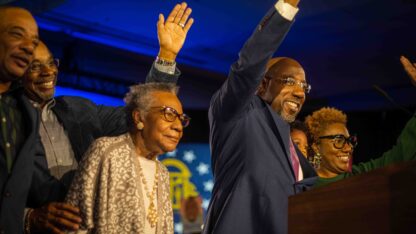What Republicans can learn from Herschel Walker's loss

After Rev. Raphael Warnock, a Democrat, narrowly won Georgia’s U.S. Senate seat in a runoff against GOP challenger Herschel Walker, Republicans are trying to decide where to go next.
The outcome makes a significant statement about the current political climate in Georgia, says Kerwin Swint, political scientist at Kennesaw State University.
Swint joined WABE’s “All Things Considered” to talk about what Republicans can take away from the results of the election.
He said this election reaffirms Georgia’s status as a preeminent battleground state that is likely to be solidly “purple” for the foreseeable future.
According to Swint, one of the factors that held Walker back in a state which Governor Brian Kemp handily won on November 8th, is Walker’s close association with Donald Trump.
“There were a lot of, particularly independent voters, but also moderate republicans in the suburbs, who couldn’t bring themselves to vote for Herschel Walker,” said Swint. “Metro Atlanta doesn’t particularly like Donald Trump and they keep proving that in election after election.”
Swint said for Republicans to succeed, they should model themselves after Kemp — a conservative who upholds those principles while still appealing to the electorate in a purple state.








